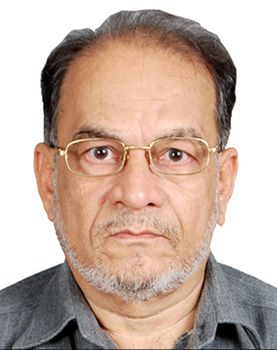Indian higher education has been hibernating for too long. It is time for it to wake up and get going. Various surveys on education have unanimously declared that there is much to be desired about the quality of education. High-quality education is a product of excellent syllabi and brilliant teachers. There seems to be a worrisome deficiency in both requirements.
Syllabus revamp and updation are thorny issues. Several agencies are directly involved in the process. The affiliation system which worked well for long has now reached its expiry date. It is now strangulating the spirit of experiment and innovation in colleges. They merrily hide behind the excuse that they cannot revamp and update the syllabi because the affiliating university does not allow them to do so. Many colleges do not have the resources to launch enrichment and value-addition courses. The semester system is another insurmountable hurdle as it leaves no time for walking the extra mile.
One way out is to obtain autonomous status for colleges as it can afford considerable elbow-room for experimentation. Colleges graded “A” and above by the National Assessment and Accreditation Council (NAAC) are now being pushed in to the autonomous club, though many of them are neither willing nor worthy. Teachers generally fear that their own autonomy and comfort zone will be endangered and their work would become onerous if their college becomes autonomous. But are they alone to blame? Where are the opportunities to update and get excellent exposure?
Thanks to NAAC, most colleges have now established an Internal Quality Assurance Cell (IQAC) with the lofty ideal that this body will be the true custodian of excellence and harbinger of change. Fifty years ago, Alvin Toffler in his celebrated Future Shock suggested that every educational institution have a “Council of the Future” consisting of “teams of men and women devoted to probing the future in the interest of the present”. The IQAC is expected to be on the lines of Toffler’s Council.
The question is, are the men and women in the IQACs keen and able to look into the future and shape the present? First of all, they have to shed their risk-averse mindset. They should be dedicated and visionary persons, alert and exposed to the fast-changing expectations and needs of the world market. They must implement changes robustly and resolutely to suit the demands of the market. Every board of studies should have at least 50 per cent experts from the world of industry, management, science and technology, in addition to subject experts. The employer is looking for workforce with skills, both hard and soft, which are expected to boost employability. Narayana Murthy once complained that Infosys had to shell out millions to train fresh graduates. Why cannot colleges provide job-ready students? Is their feedback system in place? Are they mindful of the tangible outcomes expected by the employer?
The future of work is often described as VUCA (volatile, uncertain, complex and ambiguous). Toffler’s message for education was, “The prime objective must be to increase the individual’s ‘cope-ability’.”
I would like to conclude with Stephen Covey’s cautionary words: “If you keep doing what you are doing, you keep getting what you are getting.” And what we are getting is mediocrity. Therefore, review, revamp and relate to reality.
Chindhade is former principal, MU College, Pimpri-Pune.


